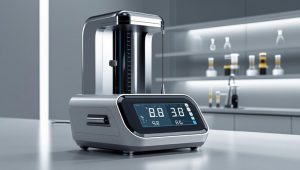The current measurement device market is undergoing a rapid transformation as industries worldwide demand more precise, intelligent, and adaptable power monitoring solutions. With the proliferation of complex electronic systems, electric vehicles, renewable energy sources, and smart grid infrastructures, traditional current measurement methods are giving way to innovative technologies designed for higher accuracy, real-time analysis, and seamless integration with digital ecosystems.
One of the most significant trends redefining the market is the integration of smart sensing technologies. Modern current measurement devices are increasingly being embedded with microcontrollers, wireless communication modules, and signal processing capabilities that enable them to go beyond basic measurement. These smart devices can now provide real-time data, trigger alerts, and communicate with control systems or cloud platforms for remote diagnostics, predictive maintenance, and energy optimization. This is particularly impactful in sectors like manufacturing, data centers, and smart buildings, where monitoring energy flow and equipment status is critical to operational efficiency.
Download PDF Brochure @ https://www.marketsandmarkets.com/pdfdownloadNew.asp?id=26656433

Another key technology shaping the market is the adoption of non-contact and non-invasive current sensing techniques. Hall effect sensors, Rogowski coils, and fiber-optic current sensors are replacing traditional shunt-based or invasive systems, offering several advantages including safety, compactness, and the ability to measure high currents without physical interruption. These technologies are particularly useful in high-voltage environments such as electric vehicles, industrial automation, and renewable energy installations, where space constraints and safety considerations are paramount.
The surge in electric vehicle (EV) adoption is also catalyzing innovation in current measurement technologies. EV powertrains, battery management systems, and onboard chargers require accurate, high-speed current measurement for efficient operation and thermal safety. New-generation current sensors are being developed to deliver high bandwidth, low noise, and wide current range capabilities tailored to the unique demands of e-mobility. As EV infrastructure continues to expand, so too will the need for robust and scalable current measurement solutions.
The renewable energy sector—particularly solar and wind power—is pushing the boundaries of current sensing technology. Inverters, energy storage systems, and grid tie-in equipment all depend on current measurement devices to manage loads, balance phases, and ensure grid compatibility. The variability of renewable energy production makes real-time, high-resolution current monitoring essential for system stability and efficiency. Advanced digital current transducers with built-in analytics are emerging to meet these complex requirements.
Artificial intelligence (AI) and machine learning (ML) are beginning to influence the current measurement device landscape by enabling predictive capabilities. AI-powered current sensors can analyze historical current patterns, detect anomalies, and predict equipment failure or energy wastage. These insights are invaluable in industrial and commercial settings where uptime and energy efficiency are critical. As AI becomes more integrated into power electronics, current measurement devices are expected to evolve into intelligent nodes within broader energy management systems.
Looking forward, the future of the current measurement device market will be defined by miniaturization, enhanced connectivity, and greater adaptability. Devices that are compact, IoT-enabled, and compatible with a wide range of digital control platforms will dominate the market. With growing pressure to meet energy efficiency standards, ensure power reliability, and enable smarter automation, current measurement technologies are set to play a pivotal role in shaping the next generation of electrical and electronic systems.
